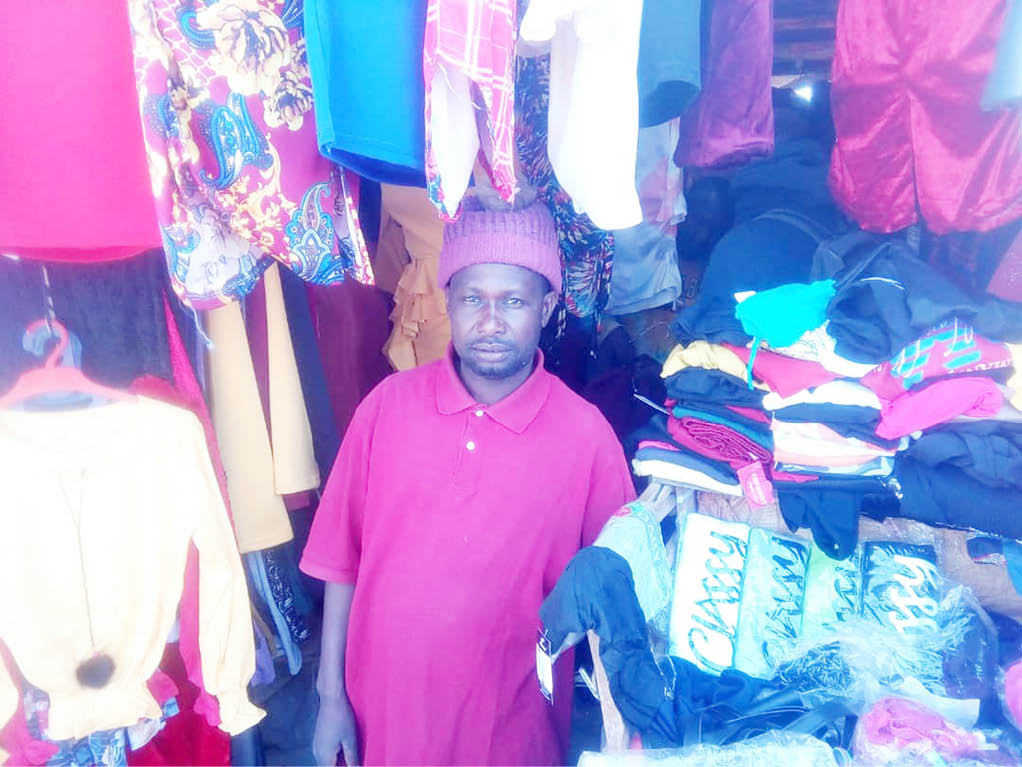At Christmas and new year seasons, people’s tastes for wears differ. While the well-to-do go for new ones, the poor opt for the second hand class popularly referred to as ‘okirika’ ‘ok’, ‘gwanjo’ or ‘bend down select.’
The prices of both categories of the items, however, depend on the levels of demand.
During the just-ended Christmas celebration, prices of commodities skyrocketed, leading to fall in demand and low patronage. However, while sellers lamented poor sales, others made brisk money through demands by buyers who could not afford new stuffs.
Daily Trust Saturday examines the market ambience in two major commercial nerve centres in the country -Jos and Lagos.

At all times, particularly during Christmas season, Lagos is a hub of new clothes, handbags, shoes, flashy hairstyles as well as fancy accessories. During the season, people troop to different markets across the state to buy them from different stores for the celebration.
Tailors are not left out as the yuletide is popularly referred to as their ‘heat period’ when they have to work extra hours to satisfy their customers who desire to be beautifully adorned in different regalia for the season.
Daily Trust Saturday’s findings indicated that the usual rush for clothing during the season inspired hike in their prices, including second hand clothes.
Our correspondent gathered that boutique owners took advantage of high cost of importation of the stuff and exchange rate to increase prices of clothes in order to make profit.
Consequently, a lot of people opted for second hand clothes otherwise called Okirika and abbreviated as OK for themselves and their children, mainly due to inability to afford new ones.
Francis Okechukwu, a bags and shoes dealer at Thomas Salako Street, Ogba, explained that the demand for second hand clothes during the yuletide was higher than during the normal season.
“From 5:30am, you would see that this place would be filled up with buyers. Some have even described the kind of bags or shoes they want and I have gotten them from the market to satisfy their desires,” he said.
He said there was always a boom during the festive period because everybody would want to put on new wears.
“When it was a few days to Christmas, I increased the prices of my shoes and bags a bit. This is because the price also increased from the market. In any case, people still bought the stuffs of their choice. Though they still bargained for a little reduction in price,” Francis said.
Francis buys shoes and bags from Trade Fair Market and Eko Idumota and bring them to his shop in Ogba where he sells them.
He expressed delight that he made over 50 per cent profit during the festive season, compared to the gains he makes on a regular basis.
“But I cannot be specific with the amount of gains I make on regular basis,” he said.
He added that he stayed for longer hours at the market during the Christmas season compared to the regular times.
Patience who sells OK female clothes, said that she had to visit Katangua Market, Abule Egba, Lagos three times a week to restock as people troop to her stall for Christmas shopping.
She said with all sense of pride that she deals in what she described as Grade 1 second hand wears which she buys from Katangua Market, but added that the business was stressful.
“I sell off my wears very fast. I leave my house as early as 4:30am so I can get to the market early and select good materials. Once I open my bail, my customers rush them. That is how it is during Christmas period.
“I have to leave my house early to get to Katangua because if I delay, they will buy off all the good clothes before I arrive. I also have to take care of my home because I am a married woman.
“I rarely visit the bank to save money because I do daily contributions with other women in the market. I pay daily and use part of my money to restock my wares,” Patience said.
In Jos, the Plateau State capital, buyers of second hand clothes as well as sellers lamented increase in prices, especially children wears. Children are always at the centre of attention during Christmas and new year shopping.
Istifanus Bako, a buyer, who came to the market with his wife, said that despite the high prices of clothes and economic hardship, he owed his children an obligation to buy Christmas clothes so that they would not look shabby among well dressed peers during the celebration.
A few sellers who spoke with our correspondent at the popular Terminus Market in Jos lamented low patronage. They also observed that the market was not as full as it used to be during Christmas.
A clothes seller, Ibrahim Lawan, attributed this to the rise in prices. He recalled that during the Christmas season last year, the market was always filled to capacity. He said that despite the COVID-19 pandemic characterised by lockdown and economic hardship, people still thronged the market in their numbers to buy and sell.
Lawan said last year, he bought certain clothes for N2,000 and sold at N2,500, while he bought others at N3,000 and sold them at N3,500 or slightly above.
“But this year, the prices of clothes bought for N2,000 last year rose above N3,500, while those sold between N3,000 and N3,500 last year rose to more than N5,000.
Despite selling some second hand clothes for between N1,200 and N1,500, depending on the quality, Lawan said he still recorded low patronage as buyers did not rush for the materials as they used to do during the season.
Another seller, Doro Ibrahim, who also bemoaned the low patronage, said he had more customers during last year’s Christmas season than this year, so much that he found it difficult to attend to them adequately due to the huge patronage.
“But this year, I had to pursue customers to the road to drag them to my shop to patronise me. At other times, I stayed outside the market to woo customers because I was desperate to sell my stuff,” he said.
Ibrahim expressed fears that if the economy failed to improve, he might not be able to sell all the bales of his second hand clothes before Christmas or until the end of the year.
He blamed the low patronage on what he described as intense economic downtown and lack of money in circulation.
He called on government to do all it could to address the hardship in the country before the living conditions of the helpless poor degenerate.

 Join Daily Trust WhatsApp Community For Quick Access To News and Happenings Around You.
Join Daily Trust WhatsApp Community For Quick Access To News and Happenings Around You.


